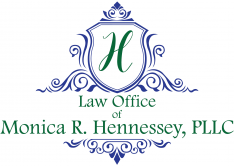Trust Administration
The loss of a loved one is difficult and will often leave family and friends with many questions about what to do next. See this Checklist for things that the family can take care of to help protect themselves and their loved one’s estate while they begin the grieving process.
What is Trust Administration?
Trust Administration is the process where the successor trustee finishes business within the trust and distributes assets to the beneficiaries as designated by the terms of the trust. Even though your loved one has made their wishes known in the trust document, it can be difficult for successors to understand the process, especially if the successor has never managed a trust before. This firm’s goal is to provide you with quality trust administration services tailored to your specific needs and the goals of the trust. It is important to make sure that you manage the trust properly and that the terms of the trust are followed. Even with a trust in place, there is sometimes a need to go through probate. Having a trusted advisor who can help you review estate assets and help you decide the best course of action.
Important Things to Know About Trust Administration

- Trustees are fiduciaries. This means that trustees owe certain duties to each beneficiary of the trust. These duties include refraining from self-dealing and not holding one beneficiary over the others.
- One of the first things the trustee should do is determine what assets are held by the trust. Sometimes it will be necessary to determine the value of certain assets. A common mistake is not putting all probate assets in the trust. This may require a probate to transfer such property.
- Trustees should also consult with a tax professional to determine what tax document need to be filed. Even after death, a final income tax return may be required. Also, estates over or close to the $11.4 million dollar exclusion amount may have to file an estate tax return.
- Trustees should make sure to be diligent in their administration of the trust. Inaction can cause damage to certain assets and increase liability concerns for the trustee.

